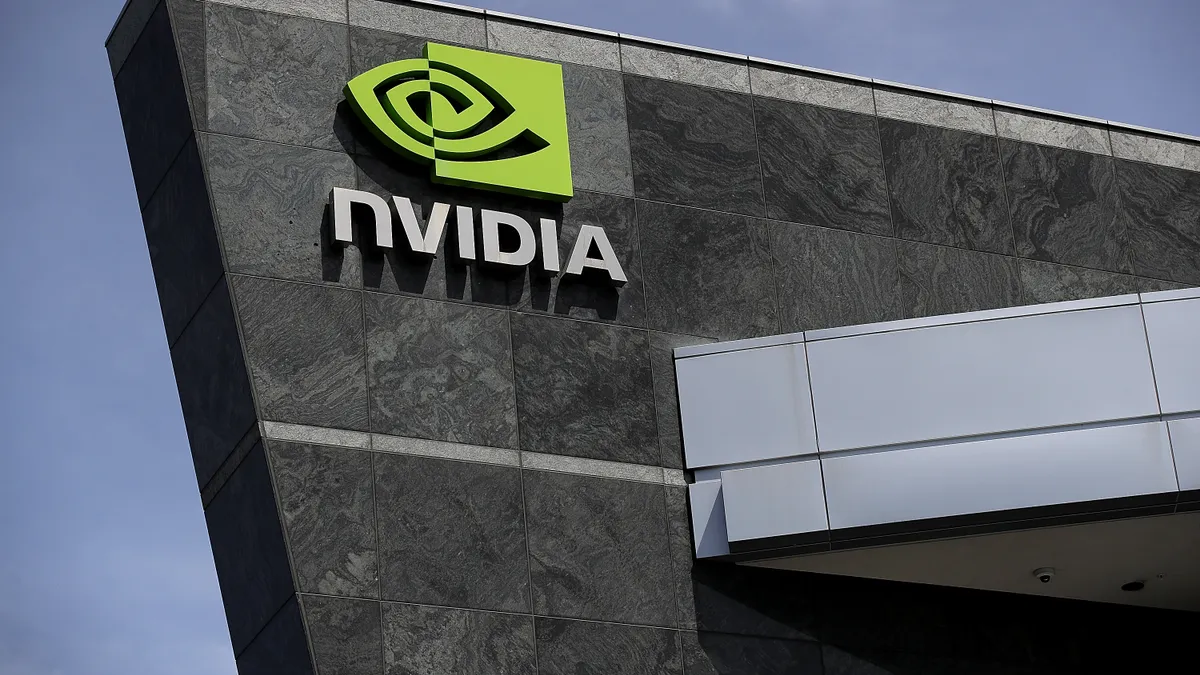Dive Brief:
- Nvidia received limited authorization last week to continue the development and export of two of its most advanced chips to China, according to a regulatory filing.
- The Department of Commerce granted the permission days after the company disclosed it was hit with new regulations requiring a special license to export the chips to China.
- Under the new allowance, Nvidia can transfer needed technology to China to develop its H100 chip through March 1, 2023 and can complete order fulfillment and logistics for its H100 and A100 chips through its Hong Kong facility until Sept. 1, 2023.
Dive Insight:
U.S. chip suppliers are coming under increased scrutiny as the Biden administration attempts to crack down on sensitive technology shipped to China.
In its Aug. 26 filing disclosing the new requirements, Nvidia wrote that the rule change was an attempt by the U.S. government to "address the risk that the covered products may be used in, or diverted to, a ‘military end use’ or ‘military end user’ in China and Russia." The license requirement also pertains to Russia, though Nvidia halted sales to the country in March.
Restrictions targeted Nvidia exports of A100 and H100 chips, which are used in AI and other emerging technologies. The company is a major producer of the chips, which it develops and sells in China.
The new licensing requirements could hamper the company’s sales to data centers in China that use its technology, a major customer segment in the country. In its initial filing, Nvidia estimated that if not granted any allowance, it would jeopardize up to $400 million in third quarter sales.
The company is working with its customers to complete orders and offer alternative technology where available.
“We are working with our customers in China to satisfy their planned or future purchases with alternative products and may seek licenses where replacements aren’t sufficient,” Nvidia said in a statement.
The U.S. is taking an increasingly active approach to export controls on critical technology as it aims to better protect the global use of its most advanced technology.
Earlier in August, the department announced more stringent controls on two types of advanced semiconductors in an effort to protect them from "nefarious end use," Assistant Secretary of Commerce for Export Administration Thea D. Rozman Kendler said in a release.
Industry observers say that it remains unclear how the government's rule change for Nvidia will impact U.S. chip suppliers' operations in the long-term, as much will depend on which licenses are ultimately granted.
When it comes to protecting U.S. interests in the global supply of chips, clamping down on exports is tricky, said Karson Elmgren, a research analyst with Georgetown University's Center for Security and Emerging Technology.
"There's clear tradeoffs. It's good for U.S. interests for Nvidia to be the leading supplier for important chips for the entire world," Elmgren said. "It gives the U.S. a lot of leverage to do things like cut off exports when it deems there's benefits."
Elmgren added that it's unlikely more restrictions will follow at this time in the industry, given Nvidia’s position as a leading developer of the hardware that creates AI.
"One of the dangers of doing these things in general is kind of shooting yourself in the foot by hamstringing one of your own successful companies and sources of tech strength," he said.
This story was first published in our Procurement Weekly newsletter. Sign up here.















